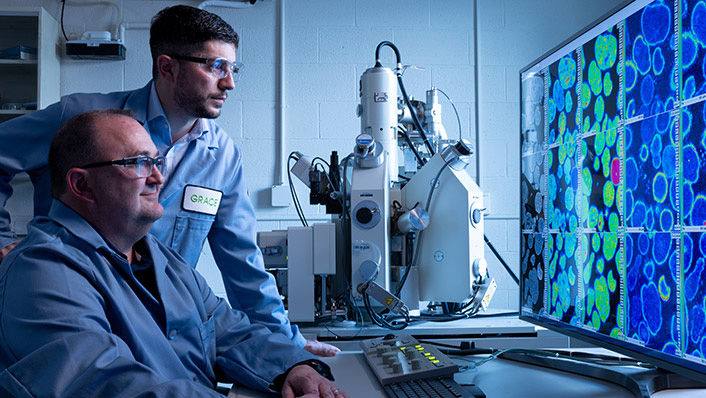Metallocene vs. Ziegler-Natta Catalysts: Which to Choose?
Polyolefin resin production relies on catalysts to control polymerization, enhance reactivity, and influence product quality.

In the world of polymer resin production, catalysts play a crucial role in determining the quality and performance of the final product. Think of catalysts as the vehicle that drives polymer production.
Which polymer catalyst is best? The one you use depends on many factors, let’s compare metallocene catalysts to Ziegler-Natta catalysts.
Metallocene Catalysts – High Performance
Metallocene catalysts are like the high-performance sports cars of the catalyst world. They offer narrower molecular weight distributions with distinct, and highly-organized, microstructure compared to traditional Ziegler-Natta catalysts.
These catalysts are valued for their ability to produce resins with controlled properties for a wide range of applications. For instance, ActivCat® catalysts are engineered to surpass the capabilities of conventional Ziegler-Natta catalysts. This breakthrough innovation isn't just about incremental improvements—it's about unlocking the full potential of advanced polyethylene and polypropylene resins, tailored to meet the dynamic demands of industries such as packaging, automotive, and building & construction.
The exceptional activation technology of ActivCat® catalysts enables a longer catalyst lifetime within the reactor, meaning producers can achieve more resin with less catalyst without compromising the quality of the end-product.
Ziegler-Natta Catalysts – Tried and True
Ziegler-Natta catalysts are like the reliable old trucks that have been around for decades. These catalysts remain commonplace for large-scale polyolefin production due to their cost-effectiveness and operational robustness.
Tailored for the specific requirements of Linear Low-Density Polyethylene (LLDPE) and High-Density Polyethylene (HDPE), Ziegler-Natta catalysts can be used for both flexible and rigid applications. Examples can be film applications for packaging, durable pipe materials, and longer-lasting household products. An example is LYNX® and SYLOPOL® catalysts, which excel in delivering polyethylene resin in slurry and gas phase process platforms, ensuring not only enhanced processability but also superior final product strength.
The Future of Polymer Resin Production
Catalysts play a crucial role in polymer resin production, driving advancements and enabling producers to meet the ever-evolving demands of the industry.
As the polymer resin industry continues to evolve, the future belongs to those who embrace innovation and excellence. By leveraging the advanced capabilities of metallocene catalysts like ActivCat® and the proven reliability of Ziegler-Natta catalysts, resin producers can achieve unparalleled performance and efficiency.